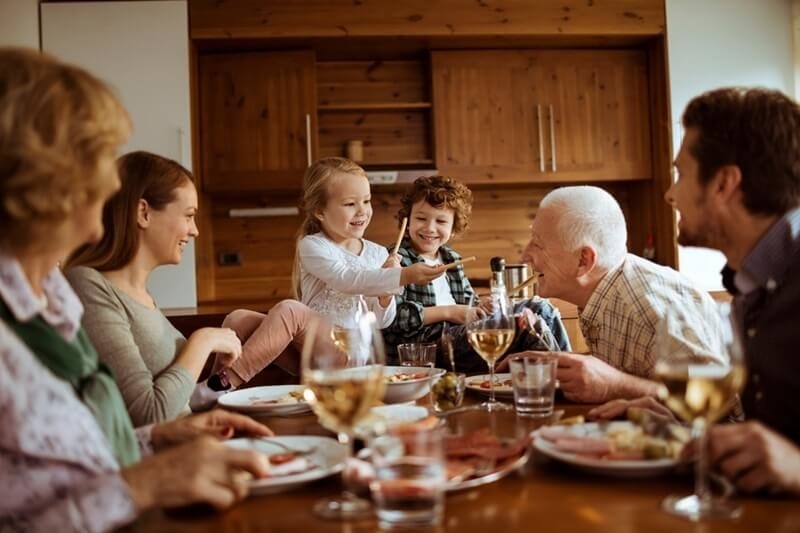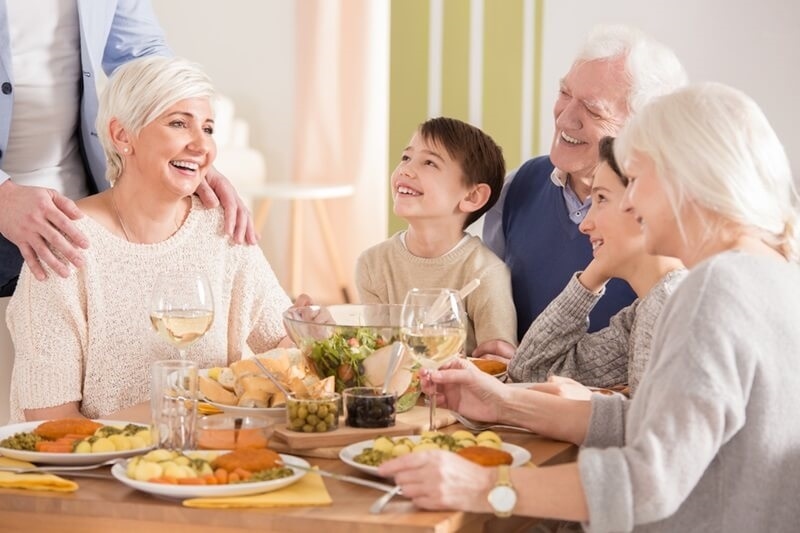
Often, family members have to hurry from one to another during their different activities, and they have very little time left for proper connection. Work schedules, school activities, and digital distractions might leave the family little time for a genuine connection. This is the reason why family mealtime traditions are so important.
Besides giving families a chance to relax, be at a time with each other and build relationships that will last forever, these traditions, whether it is just a simple dinner at home or a special weekly meal, can help families in the most effective ways to re-establish their relationships through food.
More than a habit, families that eat together on a regular basis actually commit to doing a ritual. Over time, these reunions become the main source of the family's memories. As well as being the place where, through food and talk, love, care, and comfort are passed on to each other, the dining table is transformed into a kind of home.
The dinner family rituals, such as saying grace, discussing the day's highs, or even setting the table together, have become activities through which adults and children feel connected to the community and share a part of their daily lives.

The acting of sitting down together to eat is a social occasion with numerous benefits. Research has shown that families who regularly dine together have a tendency to eat healthier. Children would be more than willing to eat vegetables, try new dishes, and most importantly, develop good eating habits.
Eating together benefits:
Not every family meal should be the same. Families can use many creative mealtime bonding ideas to make dinner more fun and engaging. Here are a few simple ones to try:
Not only are meals more enjoyable through these traditions, but their teamwork and mutual appreciation are improved as well.
Food has always been a central part of family traditions. No culture is without unique food traditions for families that not only present the past but also propagate the values. A family recipe, a special dish for a holiday, or even a weekly meal that provides comfort and that everyone is looking forward to could be those traditions.
They bring in family roots to the consciousness of the present, and thus generations find themselves in each other’s company and become very close. Take the example of family treats like cookies for the holidays or a special breakfast for a birthday that might become new yet spiritual rituals. Children usually carry these events into their own families, hence the heritage becomes alive, and the bond between families remains strong across generations.
Mindful mealtime conversations are one of the best ways to make family dinners more meaningful. Quick questions like "How was school?" can be replaced with open-ended questions that promote the sharing of thoughts and feelings.
Here are some examples:
These conversations become part of the day's routine, and gradually they turn into the most-awaited daily event.
Family dinner rituals are something more than habits; they are uniting factors. Actions like lighting a candle before meals, saying a short prayer, or even the mere act of holding hands can give a special touch to the experience. Even the setting of the table or the serving order can turn out to be a family ritual that is loved and remembered.
On one hand, these sorts of activities are upon the steps or stages of daily life. They make children expect dinner and encourage the excitement of the together time. These rituals are also a source of solace in tough times as they give the family members assurance that no matter what is going on outside, they've got each other in the home.
Due to the issues of the urban lifestyle, it has become very problematic for families to have meals together. The problems resulting from each person's different timetable, the dislikes of some eaters, and the presence of other attractions may altogether hinder family mealtime traditions. Nevertheless, the obstacles can be conquered with some planning.
What follows are some ways to make it more doable:
By focusing on the great benefit of being with loved ones rather than on the imperfections of life, families can.
Family meals are the cornerstone of a household's identity and culture. A child raised with the tradition of Sunday roasts and special holiday meals will hold those memories throughout life. Eventually, these food customs give families a feeling of both home and bragging rights.
Cooking family recipes forever becomes the method to pay homage to your ancestors. It is more than just the taste; it is about maintaining an old story. Even having a secret sauce recipe or making a cake for each birthday is loaded with unspoken meanings. Families that keep these practices alive become more intertwined with their historical past and legacies.
By eating as a family and focusing on the eating benefits, they foster healthier lifestyles as well. Kids who are used to meals at home will rarely be tempted to choose fast food. They also observe their parents eating healthily and thus end up following the trend.
Introducing new foods is one of the most beautiful times for family mealtimes. The parents have the perfect opportunity to get their kids to try fruits, veggies, other nutrient-filled meals, and snacks. Creating healthy meals that are fun and engaging for children ensures they eat rather than resist. This, over time, determines a firm foundation of life-long wellness.
Sometimes, if discussions turn to disputes or scolding at mealtime, a stressful atmosphere may be felt. Therefore, it becomes important to have mealtime mindfulness in your conversations. Shift your concentration from negative to positive and encouraging topics rather than stressful ones.
Instead of interrogating the child's grades or asking if he/she did the household chores, why not converse about hobbies, the child's interests, or funny moments? This activity forms a warm environment where children do not fear criticism, hence feel comfortable to talk. Parents also become more than just managers of household responsibilities; rather, they get the opportunity to have a deeper connection with their children.
Family mealtime traditions are really powerful because of the memories they create. A family that laughs at the table during the meal, tastes new recipes, or congratulates one another for their little accomplishments is thus not only continuing traditions but actually creating more.
When children become adults, they remember family meals through the smells, tastes, and laughter at the table rather than the food served. These memories can become part of their identity and personal view of family ties.
Family mealtime rituals counter distractions. They give families the opportunity to pause, share and reconnect. These bonds are forged through family dinner rituals, shared recipes, and mindful mealtime conversations. The many eating together—from healthier diets to deeper emotional connections—make these traditions worth keeping alive.
This content was created by AI